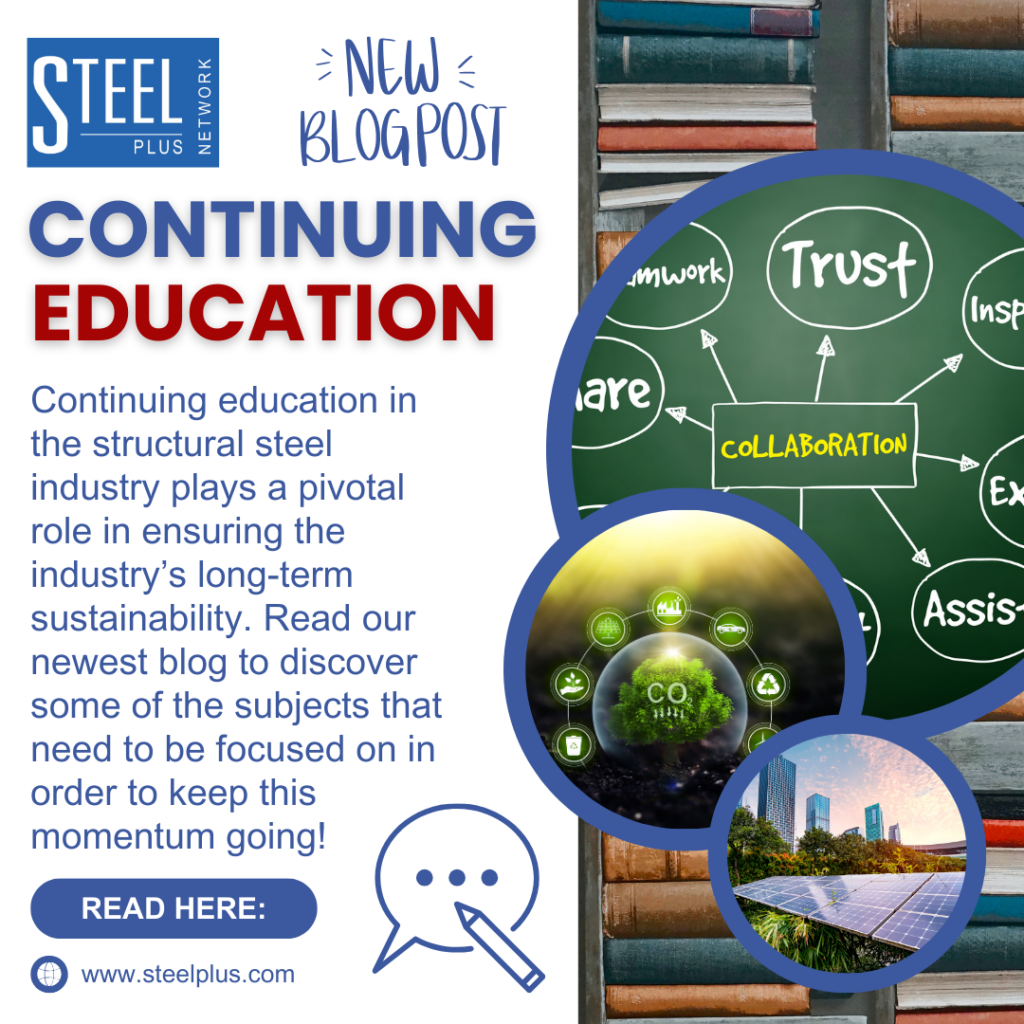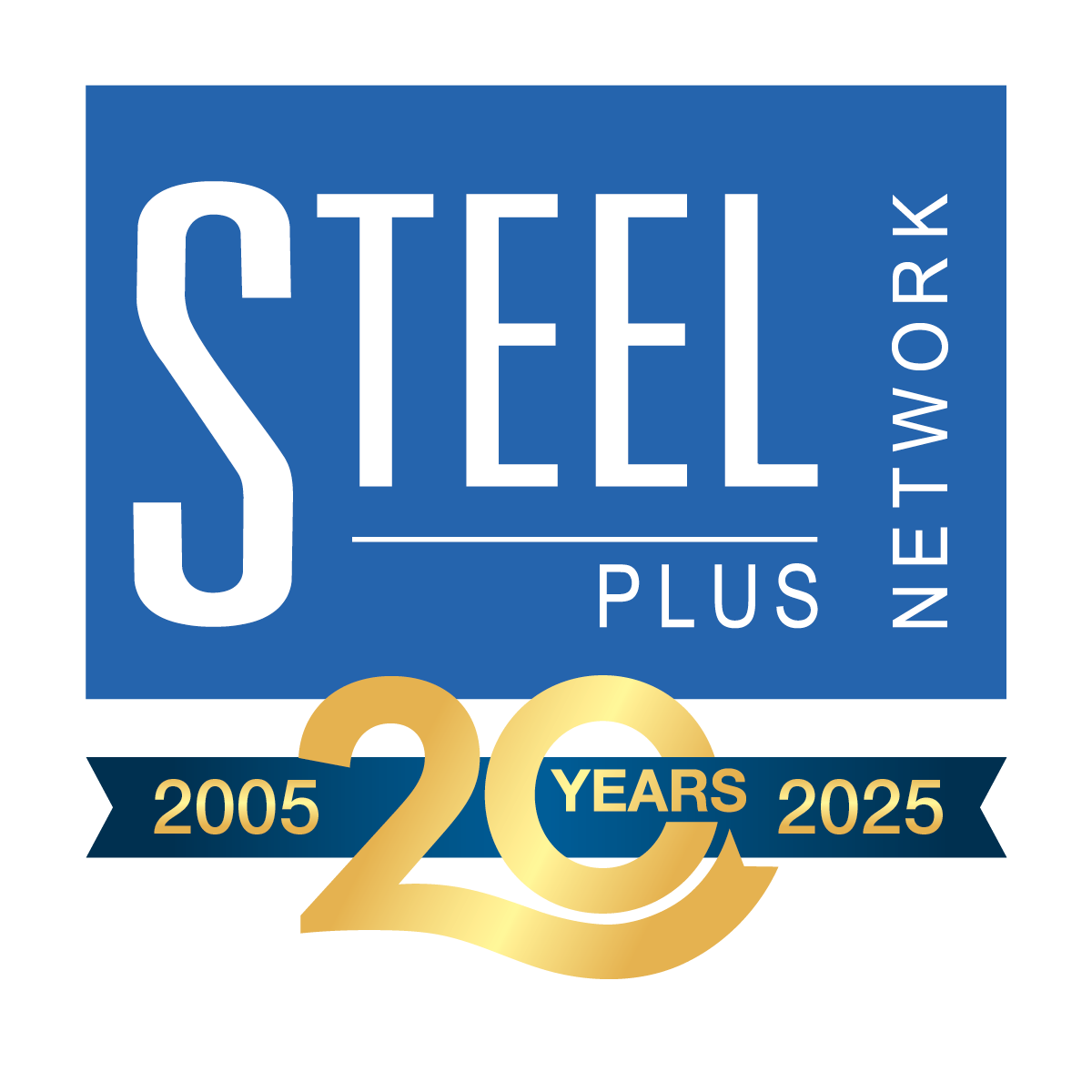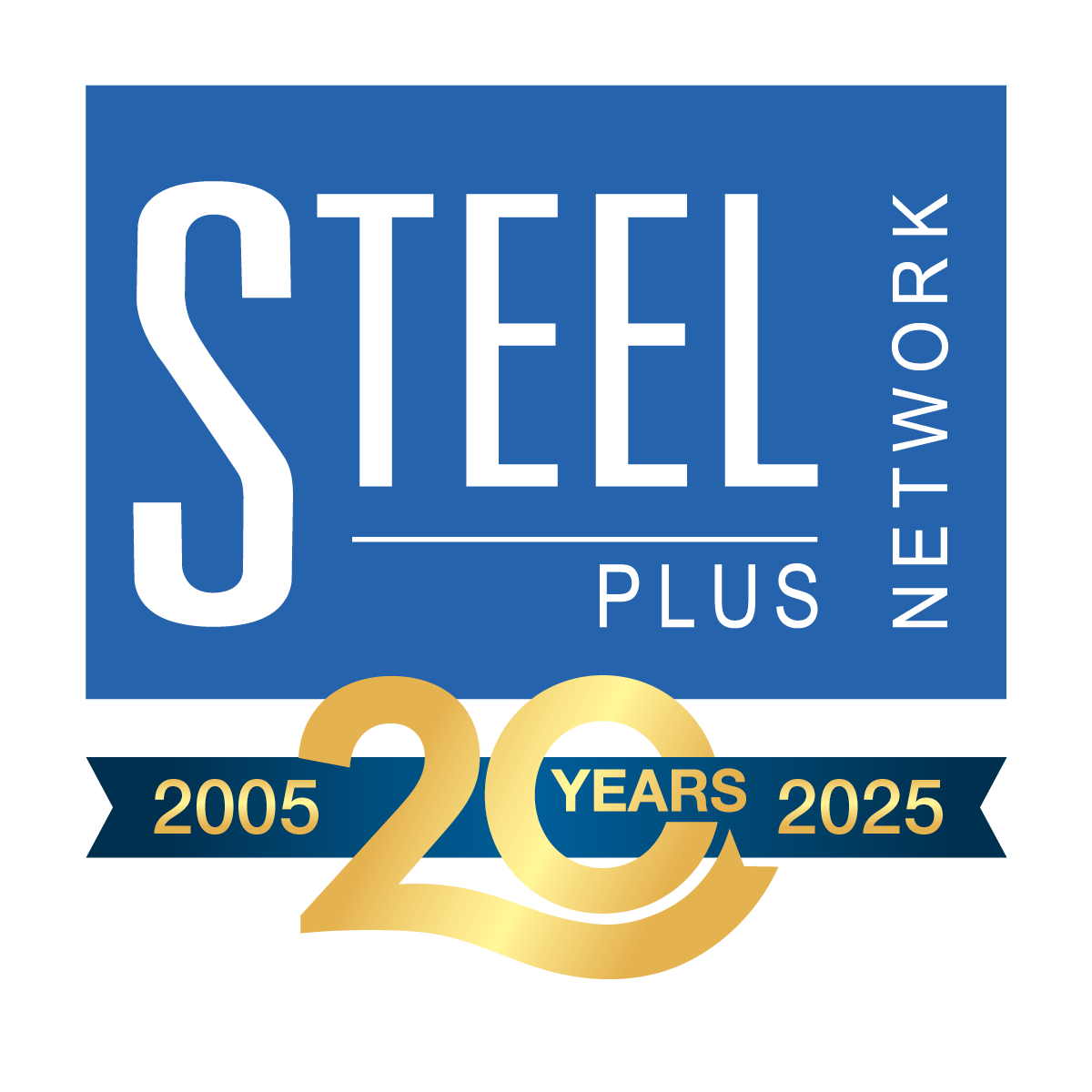Continuing Education in the Structural Steel Industry
18 Jul 2024
By Colleen Blackmore-Doucette, President
Continuing education in the structural steel industry plays a pivotal role in ensuring the industry’s long-term sustainability. Here are some of the subjects that must be focused on in order to keep this momentum going.

- Environmental Resilience and Efficiency:
- Properties of Structural Steel: Structural steel possesses properties conducive to environmental sustainability. It is durable, recyclable, and can withstand extreme conditions. These characteristics contribute to the longevity of structures and reduce the need for frequent replacements.
- Cradle-to-Cradle Journey: Understanding the life-cycle journey of structural steel—from production to use and eventual recycling—reveals its sustainability. Steel products are often referred to as “the permanent material in the circular economy” due to their ability to be recycled and repurposed.
- Reducing Carbon Footprint:
- Misconceptions: There is a common misconception that steel production results in high carbon emissions. While some steelmaking methods are energy-intensive, others, like the electric arc furnace (EAF) method using recycled ferrous scrap, are more sustainable.
- Nuanced Assessment: Educating professionals about nuanced metrics—domestic versus global emissions—helps accurately assess the energy and emissions performance of the U.S. steel industry.
- Industry Collaboration and Innovation:
- Educating the Next Generation: Industry professionals actively engage with students to impart knowledge about sustainability. Their involvement ensures that future engineers, architects, and builders understand the importance of sustainable practices.
- Research and Development: Continuing education fosters innovation. Professionals learn about new technologies, materials, and design approaches that enhance sustainability. Research-driven advancements contribute to a greener industry.
One subject that would not be top of mind for those in the structural steel industry to have their employees learn is financial planning. Charlie Wicks, Project Manager at JCT Metals in Strathroy, Ontario, said one thing he has noticed that is a huge stress factor in people’s lives is financial difficulties, in some cases causing their focus to drift off the tasks at hand which can result in poor quality and safety risks.
Ongoing learning equips employers and employees with the knowledge and tools needed to create resilient, efficient, and environmentally responsible structures. 🌿🏗️🌎
Collaborators:
- Charlie Wicks, Project Manager, JCT Metals

